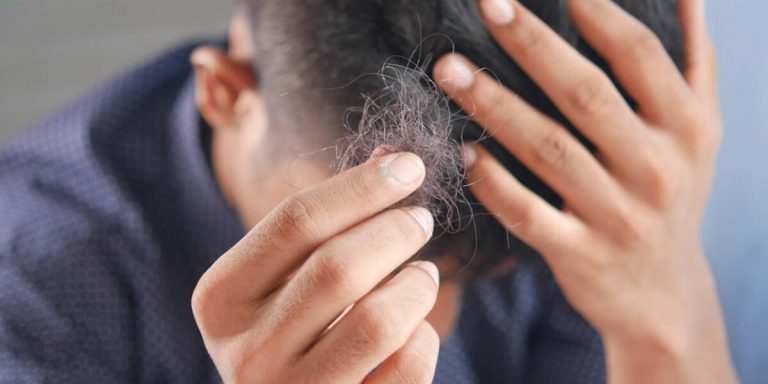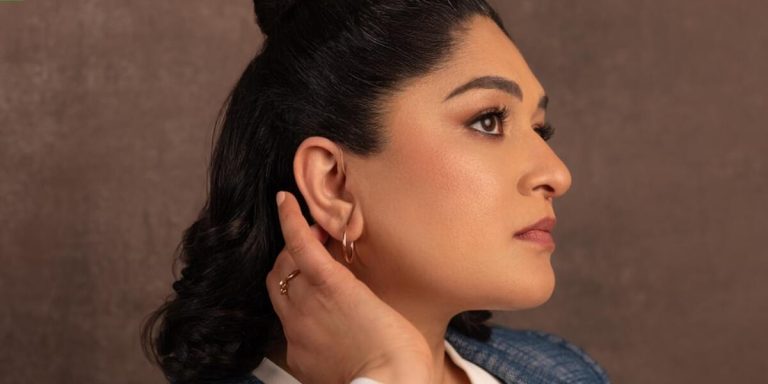Can Low Progesterone Cause Hair Loss: Unveiling the Hidden Truths Behind Hormonal Imbalance and Thinning Tresses
Hair loss is a concern that haunts many, and the causes often remain shrouded in mystery. If you’ve been searching for answers to questions like “can low progesterone cause hair loss?” then this article might just be your saving grace. This blog post aims at demystifying one such aspect of hormonal imbalances related to thinning tresses.
Many factors contribute towards our overall hair health – diet, genetics or even stress levels. Among these, role player creeping behind the scenes could perhaps be an imbalance in hormone levels – particularly progesterone. Through this piece unraveling information around ‘hair loss causes’, we’ll delve into how lessened progesterone leads to diminishing locks on your head.
Did you know?
A little-known fact is that low progesterone levels can indeed lead to hair loss, as this hormonal imbalance interrupts the natural growth cycle of your mane, resulting in unwelcome thinning.
Unraveling the Relationship Between Progesterone and Hair Health
While often overlooked, our hormones play a significant role in maintaining optimal hair health. Progesterone, specifically, is one hormone that’s been linked to the vitality and growth of human hair. Contrary to common belief, low progesterone levels can indeed result in hair loss or thinning for both men and women.
At its core function level within the body, progesterone regulates various bodily functions including menstrual cycles and pregnancy in women. However interestingly enough it also has an integral part to play concerning our hairs too – mainly because it counteracts another hormone called DHT (Dihydrotestosterone). Elevated DHT levels are associated with miniaturizing of the hair follicle which leads to gradual but persistent pattern balding over time.
Understanding this relationship better can help individuals tackle their issues more effectively by seeking appropriate treatments aimed at restoring hormonal balance rather than just focusing on symptomatic relief like shampoos or topical lotions alone.
Understanding Progesterone’s Role in Hair Growth
Progesterone – it’s a term often associated with reproductive health and hormones. But did you know that this key hormone also plays a vital role in maintaining the overall wellbeing of your hair? Yes, indeed!
Let’s delve deeper into understanding progesterone’s role in hair growth.
Many people wonder if low levels of progesterone can cause hair loss. To answer simply: yes, they very well could be contributing to your thinning strands. Progesterone plays an essential part by influencing several processes related to healthy follicle production and maintenance.
Primarily, one aspect is its power for countering the effects of another hormone known as dihydrotestosterone (DHT). When our bodies have too much DHT but not enough progesterone to balance it out, things go awry pretty quickly. Over time, excess DHT can wreak havoc on the scalp leading frequently towards pattern baldness.
Connecting Low Progesterone Levels to Increased Shedding
Understanding the connection between low progesterone levels and increased hair shedding entails delving deep into how our hormones function. Progesterone, a vital hormone in both sexes, plays many roles including regulating hair growth.
The question – “Can low progesterone cause hair loss?” is one that has emerged as pivotal within health circles today. Let’s go on a journey to unravel this mystery.
Progesterone is classified as an ‘anti-androgen’, which means it opposes the action of male hormones known to contribute towards accelerated hair fall or thinning patterns in women and men alike. When your body doesn’t produce enough progesterone, these male hormones become dominant causing follicular miniaturization leading to greater incidence of shedding.
Every strand of human hair goes through phases: growing (anagen), transitioning (catagen) and resting/shedding(telogen). Research shows that lower concentrations of circulating sex steroids like progesterone can significantly shorten the duration of anagen phase i.e., when actual growth happens; thus promoting premature entrance into telogen where strands may loosen faster than usual resulting in visible decrease in scalp coverage over time.
Hormonal Imbalance and Its Impact on Hair Loss
Hormonal imbalance, particularly low levels of progesterone, plays a substantial role in hair loss. Progesterone’s primary function is to prepare the uterus for pregnancy and nurture it; however, this hormone also has profound effects on your strands of hair. When there are fluctuations in its level – especially when it drops lower than usual –you may experience noticeable changes with potentially devastating consequences such as vast amounts of hair thinning or falling out.
Low progesterone triggers hair fall by disrupting the hormonal balance in our bodies. An optimal balance between estrogen and progesterone is essential for maintaining normal body functions, including healthy hair growth in each follicle on your scalp.
When progesterone levels drop suddenly or decrease gradually because of severe stress events, perimenopause transition, or other factors, this imbalance can cause significant shedding episodes that exceed normal limits.
Investigating How Hormones Influence the Hair Cycle
The link between hormones and hair loss is often overlooked, disregarding the crucial role they play in governing our body’s physiological processes. For a comprehensive understanding of “Hair Loss Causes,” let us delve into one such hormonal imbalance known to influence hair loss – low progesterone levels.
Progesterone is predominantly identified as a female hormone but it plays significant roles amongst both genders. It performs various functions ranging from mood regulation to supporting cardiovascular health. But can low progesterone cause hair loss?
Yes, indeed!
When looking at it through an analytical lens:
1- Low Progesterone Levels: Studies reveal that when there’s insufficient production of progesterone by either sex, Dihydrotestosterone (DHT), another potent form of testosterone starts dominating which tends towards binding with scalp follicles causing inflammation & eventual miniaturization leading on to pronounced baldness over time.
2- Menopause/Elevated Estrogen: Female patterned balding particularly becomes more prominent during menopause due largely because estrogen-progesterone balance gets disturbed.
The Consequences of Low Progesterone on Scalp Wellness
Progesterone is a vital hormone in the human body and plays a significant role in various bodily functions. Notably, it contributes to hair growth cycles, as a critical component of scalp wellness.
Hair loss can often be traced back to hormonal imbalances such as low progesterone levels. This under-discussed issue is more common than you might think. Progesterone supports hair health by extending the anagen phase – this being the active stage where your hair follicles are growing new strands.
When there’s insufficient progesterone, this phase gets abruptly cut short leading to premature shedding and thinning.
Further consequences may manifest themselves if left unchecked for long periods. Low progesterone level typically pushes up DHT (Dihydrotestosterone) concentration—an element directly linked with male pattern baldness type of Hair Loss but also affects females significantly too due to its anti-hair properties which shrink down our hair follicles making them less likely or even unable to produce healthy looking strands any longer.
Addressing Deficiencies: Can Boosting Progesterone Prevent Baldness?
Boosting progesterone might hold the key to preventing hair loss, in certain instances. The hormone plays a crucial role in various body functions and imbalances can lead to a range of health issues – including thinning hair or baldness. Progesterone helps keep estrogen levels under control; low progesterone may result in an excess of estrogen which can cause alopecia, particularly when combined with deficiencies in other vitamins and minerals essential to maintaining healthy follicles.
Today’s world, plagued by stress, often leads to hormonal imbalances such as low progesterone in both men and women. Chronic stress disrupts hormone balance by ramping up cortisol production – known as “the stress hormone.” This surge reduces the availability of other hormones like progesterone, leading to serious side effects. Accelerated hair loss is one such effect because it interferes with natural hair growth.
Exploring Treatments for Hormonally Induced Alopecia
Hormonal imbalances, such as low levels of progesterone, can significantly contribute to Hair Loss. This particular form is referred to as Hormonally Induced Alopecia and is common among both men and women. Despite the seeming complexity, it’s necessary we delve into understanding this cause of hair loss better.
The link between low progesterone levels and hair loss has been underlined by numerous scientific studies over the years. Experts believe that when our bodies experience a hormonal disruption leading to decreased amounts of progesterone in our system; it indirectly influences an increase in dihydrotestosterone (DHT). DHT shrinks hair follicles gradually causing them to stop producing healthy hairs resulting in noticeable thinning or baldness patches.
Good news – treatments for hormonally induced alopecia are available! You can primarily regulate hormone levels by boosting your body’s production of progesterone. Here’s how:
1) Natural Remedies: Incorporating certain foods enhances natural progesterone production. Items like beans, broccoli, Brussels sprouts, cabbage etc., rich with Vitamin B6 work wonders.
2) Bioidentical Therapy: Under monitored conditions applying creams/gels containing bioidentical hormones have shown positive results reversing alopecia symptoms.
3) Prescription Medication: Certain FDA approved drugs help regulate hormone imbalance efficiently reducing further deterioration caused due to low-progesterone-induced-hair loss.
Natural Ways to Elevate Progesterone and Promote Healthy Locks
Elevating the progesterone levels in your body, naturally, is a viable approach to promote healthy hair and prevent baldness. The connection between low progesterone and hair loss has been underlined by several medical studies.
Introducing Progesterone-Rich Foods: Consuming foods high in this hormone can deliver essential nutrients your scalp requires for adequate hair growth.
Remember that changes won’t occur overnight but incorporating these foods into your diet regularly could lead to better prospects of healthier locks over time.
Stress Management Techniques: Stress can severely impact our hormonal balance resulting in issues such as diminished progesterone production which may eventually trigger hair fall.
Regular exercise and meditation have proven effective at managing stress levels while promoting overall well-being – both contributory factors towards robust follicle health too!
In addition to food items, natural supplements aid the boost of progesteron—e.g., Vitex (Chasteberry), Maca root extract and vitamin B6 are known contributors towards elevating serum-progesterone level countering potential decline due to age or other factors.
Conclusion
So, can low progesterone cause hair loss? The answer isn’t black and white as our tresses are. Hormonal imbalance is a hidden villain that plays an intricate role in our bodies, including the health of our locks.
By understanding its mechanisms we’re one step closer to revealing the concealed truths behind those thinning strands.
Why stop here though? Our website is brimming with insightful information on various hair loss causes just waiting for you to explore! Knowledge empowers us against this invisible enemy we call “hair loss”.
So don’t wait another second – delve deeper and get armed with valuable insights today!







